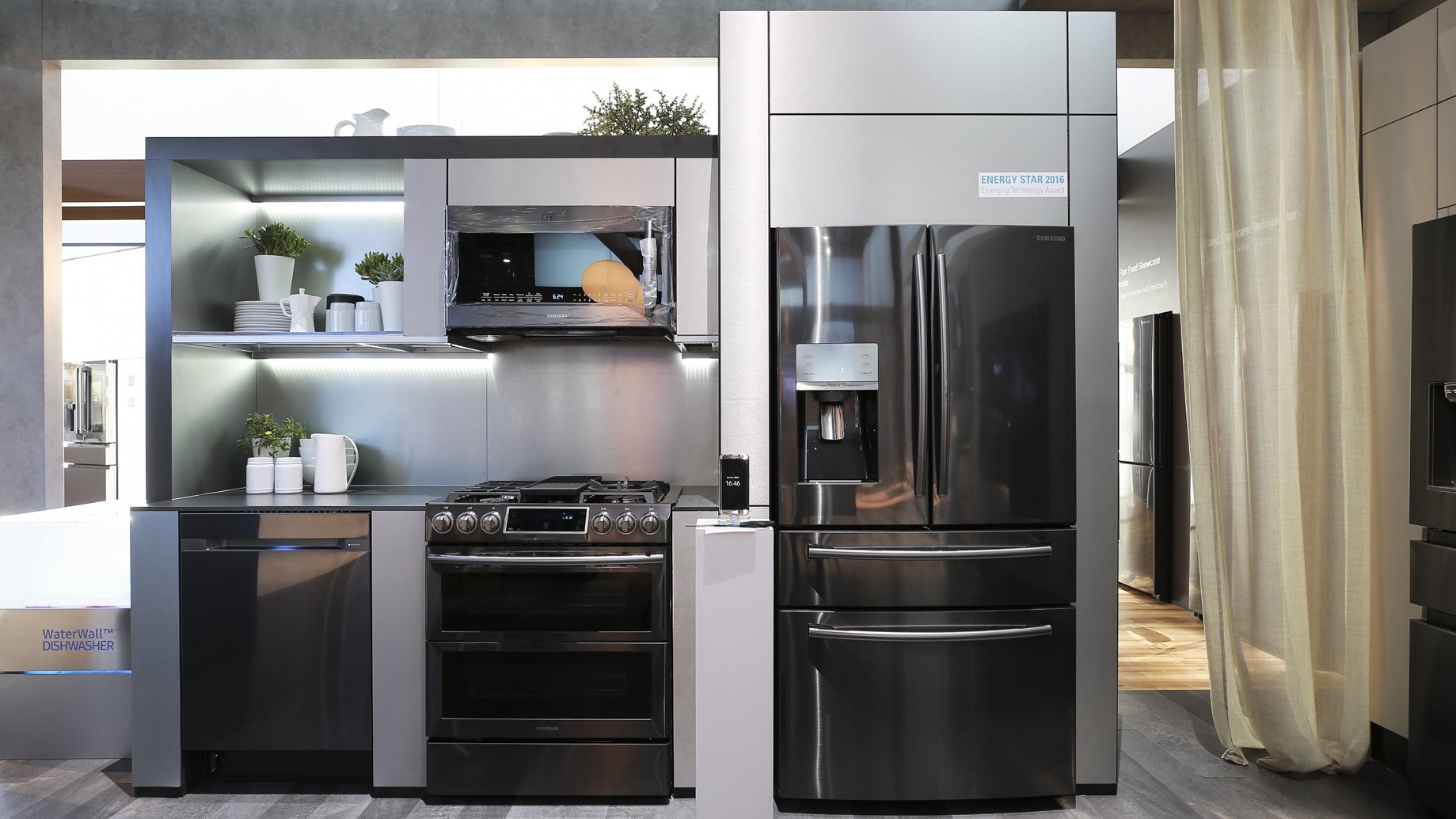Instead of talking to your smart-home hub, Samsung wants you to talk to everything
The device war for your pocket is old hat—these days, everyone wants to get inside your house. With the Echo speaker, Amazon brought smart-home hubs into the mainstream in 2014, and Google launched its own version, Home, last year. Now Samsung is following suit, but based on a much older idea: The way to the heart is through the stomach.


The device war for your pocket is old hat—these days, everyone wants to get inside your house. With the Echo speaker, Amazon brought smart-home hubs into the mainstream in 2014, and Google launched its own version, Home, last year. Now Samsung is following suit, but based on a much older idea: The way to the heart is through the stomach.
“The fridge is like a family command post,” says Yoon Lee, a senior vice president at Samsung’s American electronics arm. “It’s arguably the most important space where you spend the most amount of time and money in the house.”
Lee and I are at the CES consumer electronics show in Las Vegas, standing in front of Samsung’s newest internet-connected refrigerator. The fridge is playing music from Pandora, but that’s just one of its many talents. It also has a large touchscreen that family members can use to sync calendars and leave notes for each other, and an interior camera that can beam images of what’s running low to a waiting smartphone.
Just as a glimpse inside someone’s fridge can tell you a lot about them, a glimpse at Samsung’s reveals it to be the keystone of a much larger plan: making internet-connected home appliances pervasive. Last year, the company acquired Viv, a startup founded by the original creators of Apple’s Siri, and there are rumors that Samsung will launch a digital assistant of its own (possibly called Bixby) at its next big smartphone release.
A virtual assistant would be a natural move for Samsung, considering what its competitors are up to. Amazon kickstarted the smart-home hub craze with the Echo; Google soon jumped in and Apple may do the same. We’re growing accustomed to asking squat, oddly shaped devices about the weather, our calendars, or for a good place to get tacos, but Samsung seems to be eyeing a different approach: Instead of yelling at one little hub, why not talk to whatever appliance is closest to you?
“We’re hoping that Viv would give us a more sophisticated way to have voice interaction,” Lee said. “Eventually, Viv will be the fabric of our voice interaction on not just our mobile devices, but all of our devices.”
For now, Samsung’s smart fridges can do many of the things that the average tablet can do: play music, sync with calendars, display messages. The newest models already have a voice-command prototype. You press a button and say a command—the fridge has its own wake phrase, “Hi Samsung”—and it plays a song, or adds an item to your Instacart basket. (Unfortunately the demo space at CES was too loud; the fridge couldn’t hear us.)
The fridges are also constantly improving. At CES, Samsung showed off a prototype program that paired refrigerators with Samsung TVs over wifi, ostensibly turning the fridge into the only screen you’d need in the kitchen. Lee also said that his team is working on integrating with Samsung SmartThings—the company’s line of internet-of-things devices—so that your voice-controlled fridge could turn off the lights, open doors, watch for trespassers, or turn on the radio anywhere in your home.
It’s a powerful proposition: a unified virtual assistant that knows you whether you’re talking to it through your phone, your washing machine, your television, or your fridge. And if any company were in a position to take over the home by literally taking over all its appliances, it’s Samsung: The electronics giant produces a wide array of products that could all theoretically be built to sit, wait, and listen for their human masters’ voices. At least until robots follow us around to do our bidding.
There is one big caveat: There are expensive machines. Samsung’s second-generation smart fridges range in price from $3,000 to $6,000; considering that the average person replaces their fridge about once a decade, that’s a lot of money for not exactly the hottest accessory.
Lee is unflappable on this point. The fridges will come with some over-the-air software upgrades, but he also says that in the future, upgrading a fridge will be as routine as upgrading a smartphone. Samsung is also already working with new fridge owners on a built-in upgrade plan.
Of course, if you’re already worried about an Echo eavesdropping on your conversations, then a house full of smart devices may not be a comforting thought (especially since Samsung’s TVs have been caught recording conversations before). To put eyes and ears in every “family command post,” Samsung faces no shortage of challenges. One of them will be reassuring consumers that no one is listening.